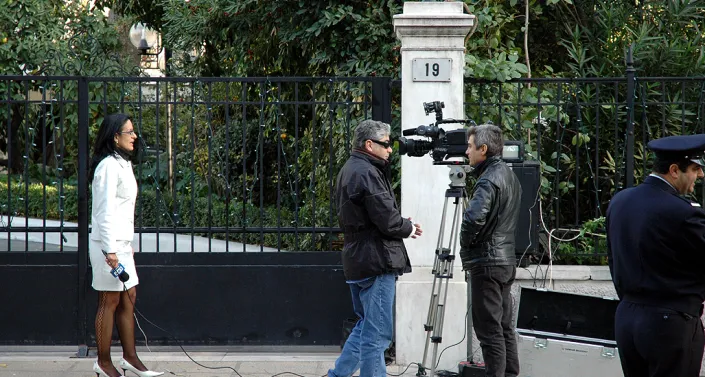
Greece
Greece’s parliamentary democracy features vigorous competition between political parties, and a strong but imperfect record of upholding civil liberties. Ongoing concerns include corruption, discrimination against immigrants and minorities, and poor conditions for undocumented migrants and refugees. The Greek media landscape has always been permeated by politics.
Media ownership is concentrated in the hands of few media magnates, shipowners and big contractors. Having vested interests in profitable industries, these tycoons have been working closely with every regime to ensure their dominance at any cost.
Greece ranks 108th in the 2022 World Press Freedom Index, a dramatic drop of 38 places compared to 2021.
Restrictive media landscape
As far as its structure is concerned, the Greek media is primarily characterised by excess in supply over demand. Moreover, according to the Hellenic National Centre for Social Research, more than two thirds of Greeks rely on interpersonal sources for information, while less than half of the respondents consider traditional media sources (television, radio and newspapers) as important or very important for acquiring information.
The majority of Greek media outlets have managed to survive the financial crisis but the media industry still has to deal with the consequences of the crisis in terms of sales, loss of profit, advertising expenditure, staff salaries and emerging costs. The radical growth of new media services (broadband services, digital media, etc.) in conjunction with the developments in new technology puts the media landscape in a consistent state of flux that requires rapid, direct decisions and initiatives from media companies.
Safety
Investigative media and media critical of the government were either omitted or were given a disproportionately small share of the advertising resulting from a controversial 20-million-euro public information campaign about Covid-19. In February 2021, public TV channels were ordered not to broadcast videos circulating on social media that showed the prime minister disregarding lockdown rules. They are under his direct control. The police resorted to violence and arbitrary bans to hamper coverage of the refugee crisis on the islands. There is concern about the new rules for policing demonstrations, because it designates areas for the press. In April 2021, the community of Greek journalists was shaken by the assassination of Giorgos Karaivaz, a reporter specialising in crime issues.
Free Press Unlimited’s projects
For the local journalists in Central Europe, Free Press Unlimited provides some courses about cross-border journalism, sharing with them Free Press Unlimited’s team experience in creating, and producing the transborder journalistic stories content as well as distribution of this content across the cross-border audience. To develop their skills Free Press Unlimited team also provides mentoring and other assistance in content production.
Photo: Caribb.
